General Dentistry
Cosmetic Dentistry
Dental Implants
Regular dental check-ups are so important when it comes to maintaining oral hygiene. They are key to treating dental issues in their early stages, maintaining a healthy smile and preventing future health risks. It’s common to develop dental problems throughout your lifetime, so regularly seeing a professional is the first step in preserving your smile.
At Studio Smiles, we pride ourselves on providing a unique, frictionless experience to make sure you get the most out of your journey. Your dental check-up will include a thorough chat where we get to know you as an individual, an examination of your mouth, a professional clean and any x-rays if necessary. We invest our time into this thorough approach to make sure you feel completely comfortable and confident moving further. If you’re experiencing severe pain, make sure you call the clinic directly and we’ll do everything we can to make sure you’re attended to as soon as possible. Our aim is to get you out of pain as quickly as we can. Book your appointment today, and smile with confidence.
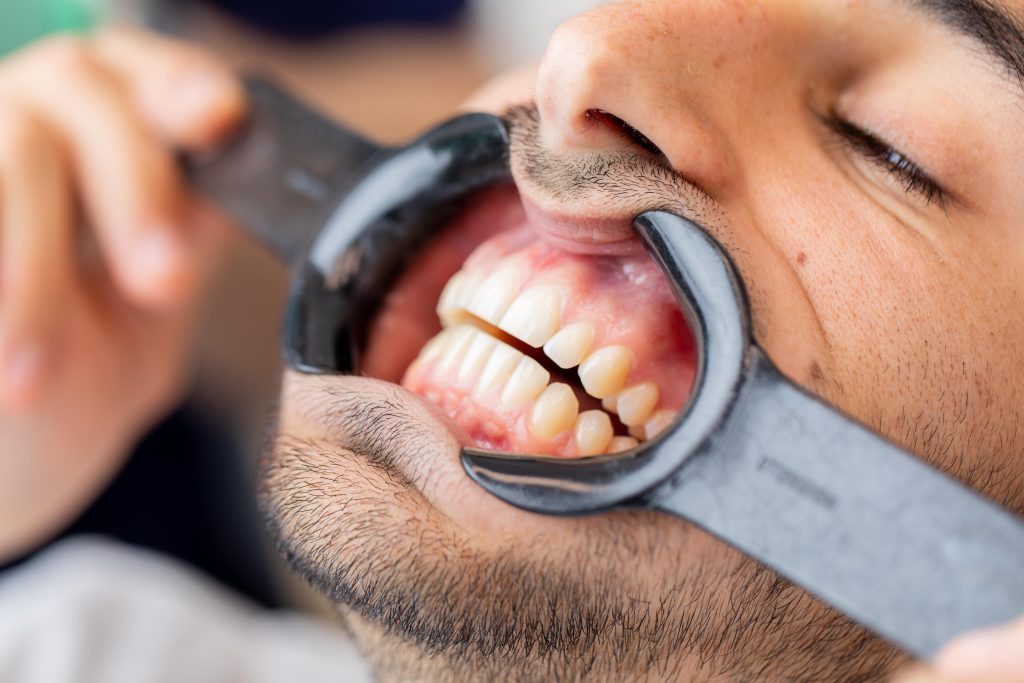
Bad breath, otherwise known as halitosis, is caused by sulphur-producing bacteria that live on your teeth, tongue and in your throat. When proper oral hygiene isn’t practiced, this bacteria releases odorous compounds, giving you bad-smelling breath. Bad breath can also be a symptom of infections and diseases, or other underlying conditions.
Causes of bad breath include:
Treatment for bad breath varies depending on the cause. Practicing proper oral hygiene by brushing twice daily, flossing daily and maintaining regular dental check-ups can often resolve the issue. Bad breath caused by disease or infection will require an appointment with your dentist. Book an appointment today.
If your gums bleed easily, this could indicate a need to improve your brushing or flossing technique. It could be a symptom of an underlying health condition.
Causes for bleeding gums include:
More serious causes of bleeding gums are:
If you’re experiencing bleeding gums, it’s important that you come and see the team at Studio Smiles. Our team will do everything they can to make sure you’re treated with complete comfort and care. If left untreated, your bleeding gums could result in further dental problems.
Cavities are caused by a combination of bacteria, acid, saliva and food particles. This combination sticks to the teeth, slowly eroding the enamel and causing cavities (holes). If left untreated, dental cavities gradually become bigger, causing toothache, infection and tooth loss. This is why maintaining optimal oral hygiene and a good diet is important.
Signs and symptoms of cavities include:
Common causes of cavities include:
There are a range of treatments for cavities, depending on their size and severity. It’s best to book an appointment as soon as possible to make sure the decay in the tooth doesn’t worsen with time. Once that cavity has been filled up, you’ll be pain-free almost immediately. Get treated with comfort and care. Book an appointment today.
Dental crowding is when your teeth are overlapped, misaligned or displaced because there isn’t enough room for them to fit within your jaws. Crowding can lead to further issues, causing discomfort and pain, so it’s important to seek professional treatment.
Crowding is often due to a natural growing issue, but other causes can include:
At Studio Smiles, we’ll be able to listen to your needs to determine the best possible outcome. Nowadays many cases of crowding or overcrowding can be treated comfortably with clear aligners (Invisalign) – no need for those old school metal train tracks (braces)!
Dry mouth syndrome occurs when you do not produce enough saliva to keep your mouth wet. It is often a symptom of an underlying issue or a side effect of medication.
Symptoms of dry mouth can include:
You may be experiencing dry mouth for many different reasons, including:
Dry mouth syndrome can increase your risk of tooth decay, so it’s important to seek professional advice. Our highly qualified team at Studio Smiles will be able to get you checked out as soon as possible.
Dry socket is a condition that can occur after you’ve had an adult tooth removed, such as a wisdom tooth. After a tooth is removed, a blood clot forms to protect the wound while it heals. If the clot doesn’t form properly or becomes dislodged or dissolves before the wound has healed, this can create a dry socket.
A dry socket can leave the nerves and bones in your gums exposed to air, food and fluid. This can lead to further infections and cause severe pain. If you experience a dry socket, it’s important that you seek professional dental treatment immediately.
Signs and symptoms of dry socket include:
To treat a dry socket, your dentist will need to clean and disinfect the affected area, packing it with a dressing or gauze. Further instructions on how and when to remove it will be provided. If you’ve developed an infection, you may need to be prescribed antibiotics.
To help prevent dry socket after having a tooth removed, it’s important to take care of the extraction site. This includes:
Gingivitis is a common form of gum disease that causes redness, swelling and irritation in your gingiva (the gums around the base of your teeth). Gingivitis is usually caused by bacterial plaque forming due to poor dental hygiene. It can be prevented or reversed by brushing twice daily, flossing daily, and maintaining regular dental check-ups. It’s important to have gingivitis treated as soon as possible, as it can lead to a more severe gum disease, called periodontitis, and even tooth loss.
Signs and symptoms:
Other causes and risk factors for gingivitis include:
At Studio Smiles, we’re able to treat gingivitis with state-of-the-art technology. This provides a pain-free, frictionless experience to have a comfortable journey.
Mouth cancer, also known as oral cancer, refers to cancers that occur in areas of the mouth including the tongue, lips and floor of the mouth. While mouth cancer isn’t common, the biggest risk factors for developing it are tobacco and alcohol consumption.
Signs and symptoms to look out for include:
Symptoms of mouth cancer are often first identified by a dentist. Treatment for mouth cancer will depend on the type and stage of cancer, the area it’s in and where it has spread.
Early detection of mouth cancer will make treatment more effective. So, if you have any concerns or symptoms, call the Studio Smiles clinic directly for professional advice right away.
We’ll be here for you every step of the way.
Teeth grinding is a condition where you excessively grind your teeth or clench your jaw. It usually occurs while you are sleeping, although some people grind their teeth while they’re awake.
Teeth grinding can often be caused by emotions such as anxiety, stress, anger or frustration. It can also be a habit during deep concentration. Medications, caffeinated beverages and recreational drug use can also increase your risk of teeth grinding.
To prevent further damage to your teeth while sleeping, a nightguard (occlusal splint) is an excellent option. This can be made for you at your appointment with Studio Smiles. Make sure you take care of your smile. Book an appointment today.
The temporomandibular joint connects your jaw to your skull. They are the joints that allow you to eat, speak and form facial expressions. You have two – one on either side of your face, in front of each ear.
Temporomandibular joint disorders (TMD) are common disorders that cause pain, joint noise and irregular jaw movements.
Temporomandibular joint disorder can cause a range of uncomfortable or painful symptoms, including:
TMD is often caused by:
If you’re experiencing any of these symptoms, book an appointment with Studio Smiles right away. Treatment for TMD depends on the cause and severity of the disorder, your age and health. This will all be explained to you in thorough detail at your appointment. Our goal is to be completely transparent.
A toothache refers to pain and inflammation in or around your tooth.
If you have a persistent toothache, it may be caused by dental problems such as:
Toothaches are generally an indication of an urgent underlying issue. Call the Studio Smiles clinic directly and our team of highly qualified dentists will be able to thoroughly talk you through our treatment options. Our goal is to make sure you receive the best possible treatment for a painless outcome.
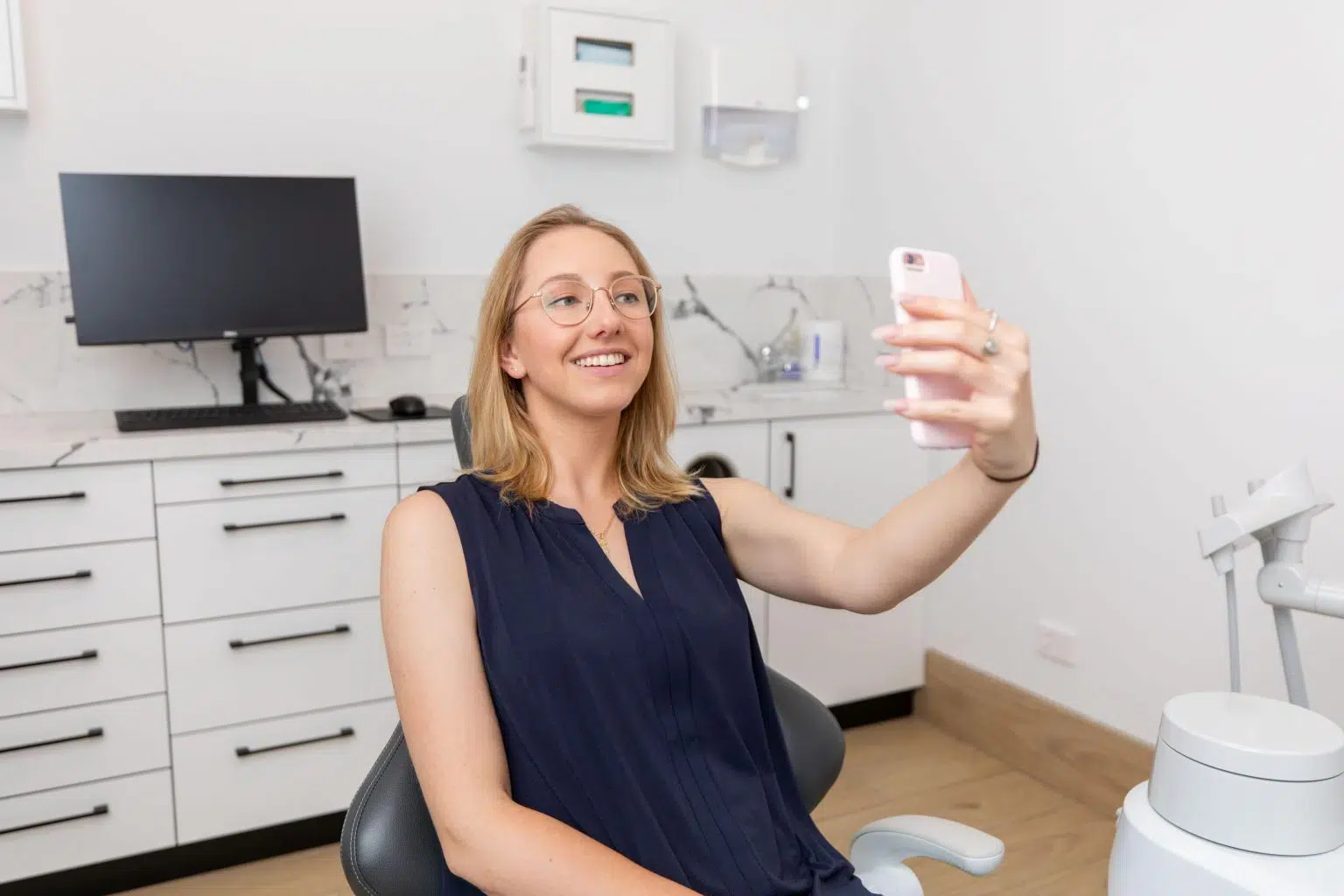
We’ve helped thousands of smiles. Make yours next.
Book an appointmentWe strive to establish rapport and trust to help you feel completely confident on your smile transformation journey.
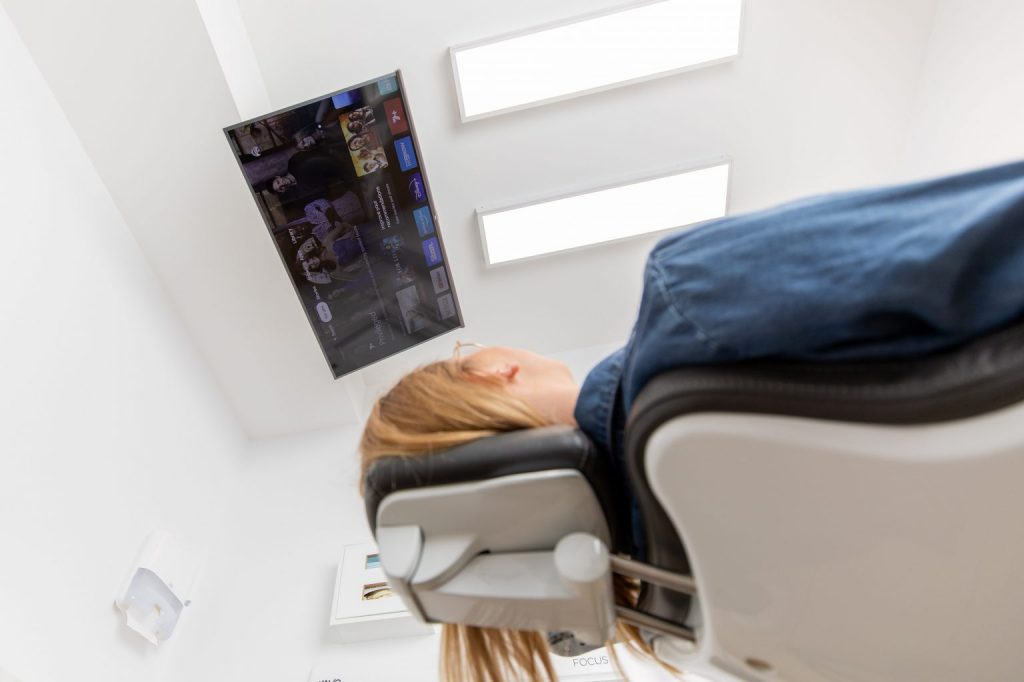
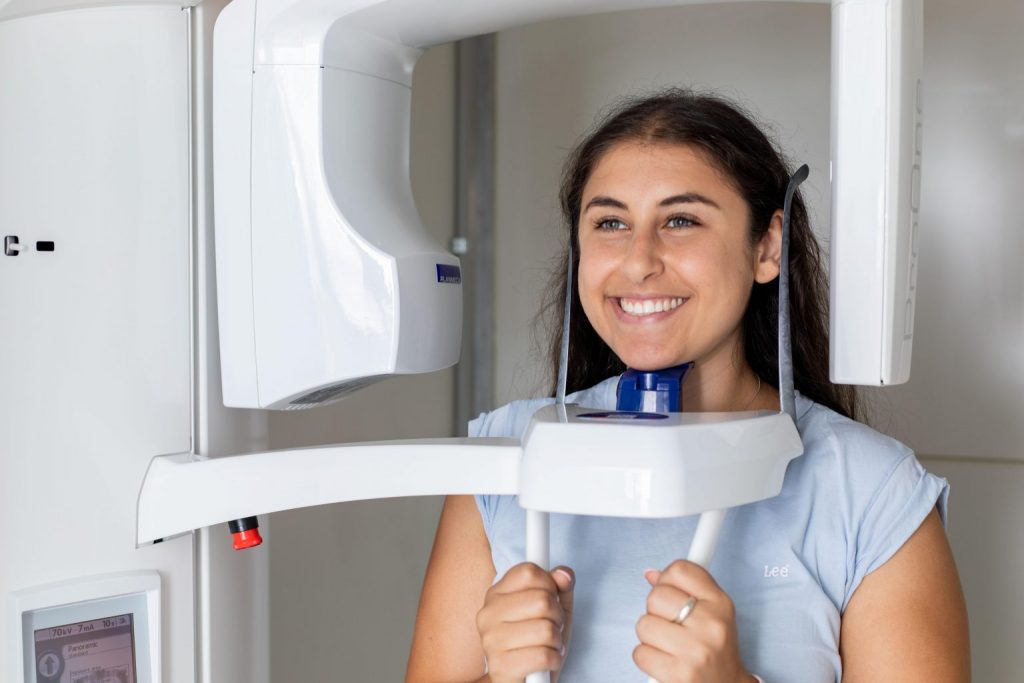

Visiting the dentist can be costly. That’s why we’ve come up with our ‘Smile Now, Pay Later’ solution. With interest-free payment plans for Highett patients, you’ll be able to pay on your own terms.
Learn More
With over 40 years of combined dental experience serving Highett, we know what it takes to achieve the smile of your dreams. We’ve thought about every detail so you can feel completely confident.
Learn More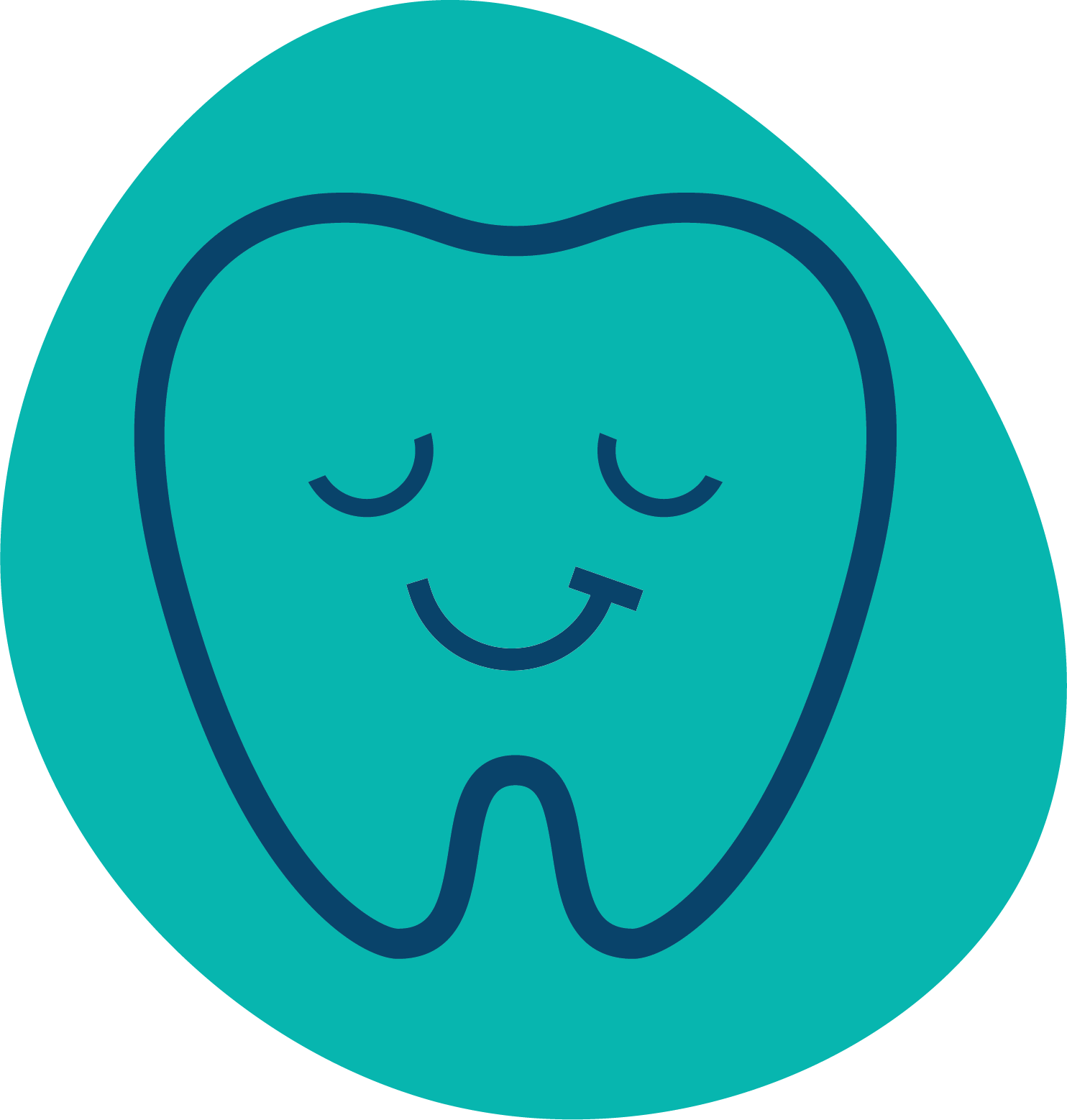
We’re on a mission to show you that visiting the dentist doesn’t have to be unpleasant. Our professional dentist team focuses solely on you and any concerns you have for an enjoyable experience.
Learn More